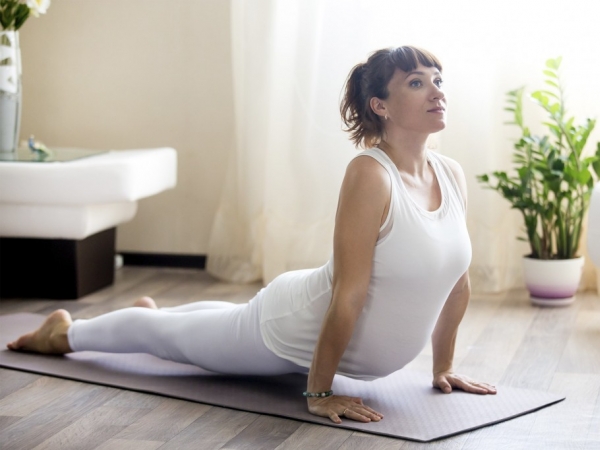When you're pregnant, it can be confusing knowing how to keep yourself and your developing baby healthy. Should you exercise or rest? Do this workout or that one? Can you keep exercising the way you always have, or should you try something new?
First and foremost it’s important to say that it’s best to listen to your doctor’s advice. If your doctor has told you not to exercise for whatever reason, you should follow their recommendation. But assuming that you're healthy and your doctor has given you the go-ahead to keep working out, the question is less about whether it's safe to exercise, and instead, whether it's safe NOT to exercise.
There Are So Many Benefits of Exercising During Pregnancy
- Increased energy and stamina during pregnancy, and during labour and delivery
- Better pelvic floor health, minimising damage to the pelvic floor
- Relief from common complaints during pregnancy, such as swelling, constipation, and insomnia
- Improved mood
Ok, Exercise Is Good for Me, but What About the Baby?
Research is very clear that exercise benefits both you and your baby. When you exercise regularly while pregnant, your baby is:
- Less likely to develop diabetes over their lifetime
- More likely to have a healthy heart rate, with the benefits lasting after birth
- Likely to have better physical and mental health over their lifetime
Tips for Safely Exercising During Pregnancy
While in general, exercise is good during pregnancy, there are some things you should keep in mind:
1. Posture
The most important thing you can do during prenatal exercise is to watch your posture. Keep your hips level, your belly lifted, your chest supported, and your neck relaxed.
2. Take it easy
Exercising during pregnancy is more for health and weight maintenance than for making any big gains or weight loss. Never raise the level of intensity higher than you were working out at prior to pregnancy, but rather maintain it, and listen to what your body is telling you.
Working “past that comfort zone” no longer applies when you’re pregnant, instead pace it and pay careful attention to your heart rate. You should at all times be able to talk whilst working out, so avoid cardio exercise that is so intense that you can't carry a conversation while doing it. This applies to any weight lifting too, ease back on the heavy weights, and compromise by doing a few more reps with lighter weights instead.
3. Avoid Stress on Abs and Pelvic Floor Muscles
After the 12 week mark of pregnancy (moving into the second trimester), it is not advisable to do any abdominal workouts that crunch down on the belly – no crunches, no sit-ups! You can still work your abs, but not in the same way that you did before you got pregnant. Instead, get an exercise mat with good support and try ab exercises that are designed for pregnant women.
Holding yourself in plank position is also still perfectly ok to do while pregnant – face the floor with your elbows on the ground under the shoulders and the belly hanging relaxed with gravity, holding the position as long as you can. This is considered safe right up until 9 months as long as the belly is not resting on the ground. If you find a plank hold is too much strain on the back in the later stages of pregnancy, you can try a lower impact version of this exercise – in the same plank position, drop the knees to the floor and continue to hold the plank.
Low squats and lunges are also exercises that need to be adjusted during pregnancy. This is due to a hormone (called relaxin) that is released during pregnancy. Relaxin is released to make joints, particularly in the pelvic area, more lubricated and relaxed to prepare for the necessary changes during labour. However, if you work out too hard with lax joints it can leave you open to injury. So avoid low dips when squatting or lunging, keep them shallow and increase the reps instead if you need to.
4. Go At Your Own Pace
Working out at the gym or joining a pregnancy workout class is a great way to stay active during pregnancy. However, if you’re not usually comfortable with group workouts or hate feeling pressured to power through your workout to stick to time limits on equipment at the gym, another option is to work out at home during your pregnancy. Investing in some light dumbbells, a good exercise mat and even hiring a treadmill or cross trainer will be more than sufficient and can generally even work out the same weekly cost as a gym membership.
Pregnancy Workouts
We've also created some more in-depth posts with tips for exercising through all three trimesters. Ready to get active?
Last updated on 12/11/2021



